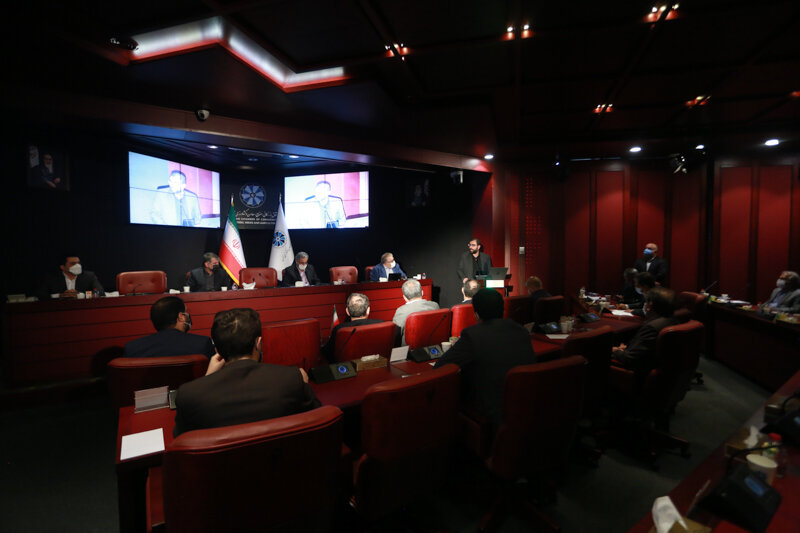Private sector representatives meet with agriculture minister to discuss issues

TEHRAN – Iranian Agriculture Minister Seyyed Javad Sadati Nejad attended a meeting hosted by the Tehran Chamber of Commerce, Industries, Mines and Agriculture (TCCIMA) on Tuesday, to discuss major issues facing the country’s agriculture and food industry.
The meeting was also attended by the TCCIMA Head Masoud Khansari and the heads of committees and entities active in the country’s agriculture and food industry, including Kaveh Zargaran, the chairman of the TCCIMA Agricultural Committee, and the Head of Iranian Food Industries Association Mohammadreza Mortazavi, the TCCIMA portal reported.
During the meeting, the attendees mentioned some of the problems and issues of the agriculture sector and called for the elimination of subsidized foreign currency allocations as a major cause of inflation and rent in this sector.
Addressing the meeting, Sadati Nejad stressed that no decision would be made in the Agriculture Ministry without consulting the relevant organizations in the private sector, and called on the private sector to submit their expert opinions to the ministry.
Also, during the event, Khansari underlined some of the major problems that the country’s agriculture and food industries are currently facing including high inflation and lack of investment and asked the minister to take the necessary measures for resolving such issues.
Khansari stressed that TCCIMA is ready to offer technical and scientific solutions to these problems for the Agriculture Ministry.
The existence of a multi-rate currency system and the continued allocation of subsidized foreign currency is a major problem for the country's economic and business sectors, he said.
Referring to the scientific and technical capacity of the private sector for providing counseling and assistance to various ministries, including the Agriculture Ministry, the official said: “Tehran Chamber, in addition to holding meetings with different entities and business organizations, cooperates with the country’s scientific institutions like universities to prepare proposal packages for overcoming economic challenges that can be used by the ministries.”
EF/MA
